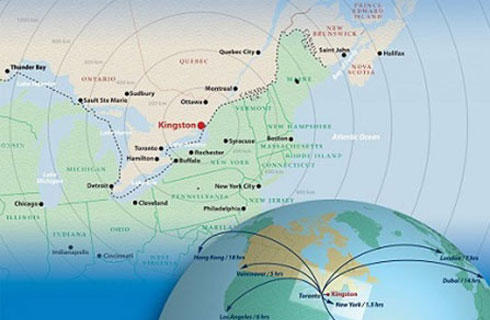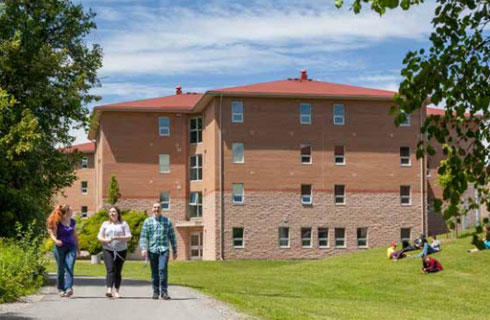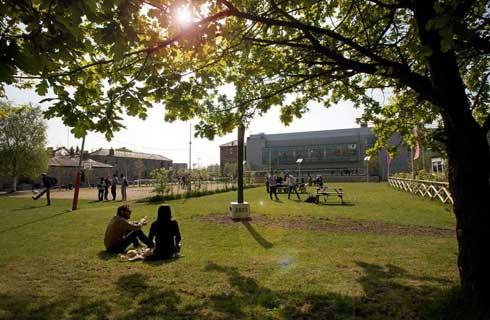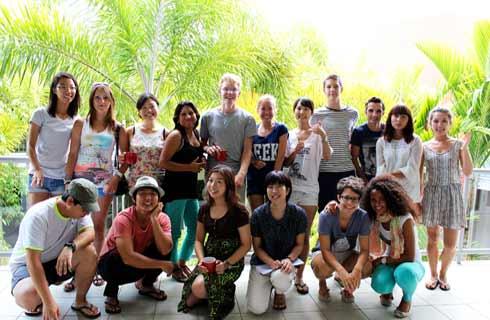Doctor of Philosophy in Civil Engineering- Environmental Engineering

学历文凭
Ph.D.

专业院系
Department of Civil and Environmental Engineering

开学时间

课程时长

课程学费

国际学生入学条件
outstanding academic performance by completing at least 2.5 credits of course work with a CGPA of A- of higher, and
significant promise for advanced research and the ability to defend their Ph.D. proposal in the first year of their Ph.D. program.
TOEFL iBT (including iBT Home Edition) - 86 (20 in reading and listening, 22 in speaking and writing)
IELTS (Academic) - 6.5 IELTS (minimum 6.0 in each band)
IDP—雅思考试联合主办方

雅思考试总分
6.5
- 雅思总分:6.5
- 托福网考总分:86
- 托福笔试总分:580
- 其他语言考试:Pearson Test of English (PTE) (Academic) - 60 overall (minimum 60 in each Communicative Skill)
CRICOS代码:
申请截止日期: 请与IDP联系 以获取详细信息。
课程简介
相关申请
 预科
预科 奖学金
奖学金 实习机会
实习机会 在校学习
在校学习 跨境学习
跨境学习 校园授课-线上开始
校园授课-线上开始 在线/远程学习
在线/远程学习
开学时间&学费
学费信息仅供参考,请与IDP联系以获取详细信息
| 开学时间 | 时长 | 学费 | 地点 |
|---|
学校排名

世界排名501
数据源:
泰晤士高等教育世界大学排名
关于卡尔顿大学

卡尔顿大学位于加拿大首都渥太华市中心,自 1942 年以来一直通过学位相关的工作经验和研究提供卓越的学习。卡尔顿大学以其充满活力和多元化的社群为傲,欢迎来自世界各地的学生。大学拥有超过3万名学生,其中包括来自150个国家的近4000名国际学生,以及12.5万名校友。在这里,每位学生的独特视角都得到重视和赞赏。该大学注重沉浸式学习,让学生获得工作经验、动手研究和社区参与,为学业和职业发展奠定坚实基础。学生还有机会通过实习、合作项目和带薪实习等方式学习,确保毕业后做好充分的就业准备。卡尔顿大学的奖学金和助学金项目是加拿大最容易申请的项目之一。每年,大学向本科生颁发超过 13000 份奖学金和助学金,总额超过 2500 万加元。大学还保证为所有从高中直接进入一年级学习的学生提供宿舍中的双人传统房间,前提是他们在五月中旬之前收到录取通知书。国际学生可以选择在卡尔顿大学校园内住宿,直至完成整个学位课程,最多可连续住宿 5 年。大学校园毗邻美丽的里多河、历史悠久的里多运河和住宅区。渥太华拥有众多政府机构和大使馆,超过1900家科技公司,以及全国大部分临床、医学和生命科学研究中心。渥太华不仅是全球在工作与生活平衡方面处于领先地位的城市之一,而且在北美科技市场中,科技就业增长率最高,排名第二(2025 年全球工作与生活平衡城市指数 2024 年 Blueground 科技人才评分世邦魏理仕)。
本校相关课程
其他相关课程

环境工程应用科学学士学位
 滑铁卢大学
滑铁卢大学学历文凭
Bachelor Degree
开学日期
课程费用总额


环境工程应用科学硕士
 达尔豪斯大学
达尔豪斯大学学历文凭
Masters Degree
开学日期
课程费用总额


环境工程学硕士
 达尔豪斯大学
达尔豪斯大学学历文凭
Masters Degree
开学日期
课程费用总额


环境工程技术文凭
 萨省理工学院
萨省理工学院学历文凭
Bachelor Degree
开学日期
课程费用总额


替代能源技术文凭
 北阿尔伯塔理工学院
北阿尔伯塔理工学院学历文凭
Bachelor Degree
开学日期
课程费用总额


环境工程学硕士
 渥太华大学
渥太华大学泰晤士高等教育世界大学排名:188
学历文凭
Masters Degree
开学日期
课程费用总额
















